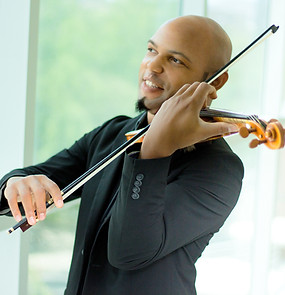
The 24 Caprices
3rd edition!
78 pages!
6 genres!
Performed at:
The Juilliard School
Spectrum NYC
Sphinx Virtuosi
Trio Jazz Center
Yoga Oasis
Arts at the Oscar:
University of Michigan
South Dakota State U.
ASTA


Dr. Immanuel Abraham
Performer • Composer • Educator • Author
Teaching Philosophy
“The best professors stay students of their field, keep a learner's humility, and teach primarily by example." —Dr. Abraham
Students fare best when they are heard and know that we are listening.
Common examples in music occur when artistic interests flow "against" a standard. For strings these interests are often in styles, composers, genres of non-classical music (e.g. Irish fiddle, American jazz, etc.) and the formation of different ensembles.
The fact must be consciously acted upon — that most students never voice unorthodox curiosities unless encouraged to. Reasons include elitism, fear of rejection, negative stereotypes, and intimidation by mentors who do not know or care. Despite even becoming bored with pedagogical routine, students often remain silent about these interests.
Some educators are also ashamed for lacking the knowledge and recourses to support them. Colleagues ask things like "How do I teach Hindustani violin when I have never heard it?" In the many instances where I have not hear of something, this is how I select artists for their masterclasses and propose studio field trips. This is one of countless situations where the educator's retention of humility is vital.
For these reasons, my teaching philosophy is rooted in encouraging students to speak up, and educators to listen. Take the extra minutes after class and put in the unpaid hours it takes to do anything well. It will strengthen the experience, knowledge, and art of all parties and institutions involved!
Keep open space for discussion.
Encourage general curiosity.
Support the individual artist.
These are our three largest responsibilities.
This approach supports students being "at home" in their learning environment. This is my teaching philosophy.
-Dr. Immanuel Abraham, Professor of Violin
String Pedagogy, Chamber Music,
and Music Appreciation at
South Dakota State University



